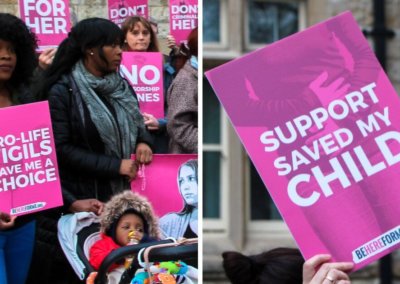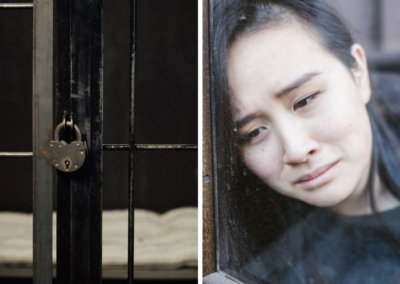Almost a quarter of pro-life students have been “threatened, abused, alarmed or distressed” for being pro-life at university, according to new poll.
According to polling by the national student pro-life group, the Alliance of Pro-Life Students (APS), over 71.9% of pro-life students report that they have faced situations in lectures or seminars where they felt could not speak about their views.
23.8% of those surveyed said they had been “threatened, abused, alarmed or distressed – by actions or words – by another student or academic” because of their membership of a pro-life society. A further 35% of the participants reported that they had seen events canceled due to the “de-platforming” of pro-life speakers. 65% of pro-life students had “witnessed another student being discriminated against or harassed for holding pro-life views”.
Freedom of expression in crisis
APS polled 206 students and recent graduates and have submitted their findings to the Joint Committee on Human Rights, who recently issued a call for evidence as part of their enquiry into freedom of expression.
CEO of APS, Madeline Page said: “These statistics are alarming, yet confirm what we already know – pro-life students are being marginalised and silenced at universities”.
“Institutional policies which refuse to allow certain topics to be discussed don’t just damage free speech – they destroy a culture of tolerance and respect on campus, ruining the chance for all students to engage with people of diverse opinions and understandings. This was made abundantly clear in the results of our survey which found that [52.9%] of pro-life students have had a friendship or relationship adversely impacted because they held pro-life views”.
“We trust that the Joint Committee on Human Rights will consider these results carefully as they reflect on the current status of freedom of expression in the UK”.
Responding to the new survey, Peri Dalkic, President of the Aberdeen Life Ethics Society reported that her group faced online abuse, their female members were branded “fat mutants” on student Facebook groups and the society had condoms thrown at them during the freshers’ fair.
Georgia Clarke, Co-President of the Oxford Students for Life Society from 2016-17 reported that protesters had become so aggressive that even with security guards at one event, the police had to be called.
Pro-lifers censored
In what appears to have become a pattern at universities across the UK, many pro-life groups have been hindered in their ability to speak freely and enjoy the same benefits as other student societies.
In the last four years, student representative bodies at Aberdeen University, Glasgow University, Nottingham University and Strathclyde University have all tried to prevent student pro-life groups from being affiliated with their university and benefiting from the same privileges available to any other student group. In each of these cases, the student unions had to reverse their decision after the groups threatened legal proceedings against them. Students at Birmingham University also had significant difficulty becoming affiliated with the university but eventually won out against significant opposition.
In 2019, in the first case of its kind, a midwifery student at Nottingham University was suspended and faced possible expulsion from her course after a lecturer raised concerns about her role in the University’s pro-life group. Only after beginning legal action was the University’s decision overturned. Towards the end of 2020, this incident was closed after the university extended an apology to the student and offered compensation for her unjust suspension.
Freedom of speech at British Universities
Freedom of expression and speech at universities is increasingly being thought to be a widespread problem.
David Davis MP is currently advancing a Bill to protect freedom of speech at universities from a “corrosive trend… that aims to prevent anybody from airing ideas that groups disagree with or would be offended by”.
A recent survey undertaken by Survation for legal advocacy group, ADF International, has found that 27% of university students have ‘hidden’ their opinions that they believe may be at odds with those of their university.
The same survey found that 44% of students believe that their lecturers would treat them differently if they made their views known, and that 38% believe that their future careers might be adversely affected if they openly expressed their true opinions.
Right To Life UK spokesperson, Catherine Robinson, said: “The silencing and self-censorship of pro-life voices on campus is a familiar story. In addition to robust free speech protections, students need to continue to be brave in being outspoken about being pro-life. Groups like APS exist to provide the support and, if necessary, legal assistance so that they are afforded the same rights as any other student group at university. Students concerned about their future at university or future career should make use of the support available”.
“Now that the censorship, which pro-lifers have experienced for a long time, is being felt by others, perhaps the Government will act decisively to ensure that this important freedom, the freedom to express what you believe, is protected from those who want to shut down the free exchange of ideas, especially at university”.












